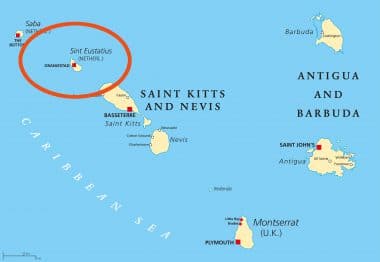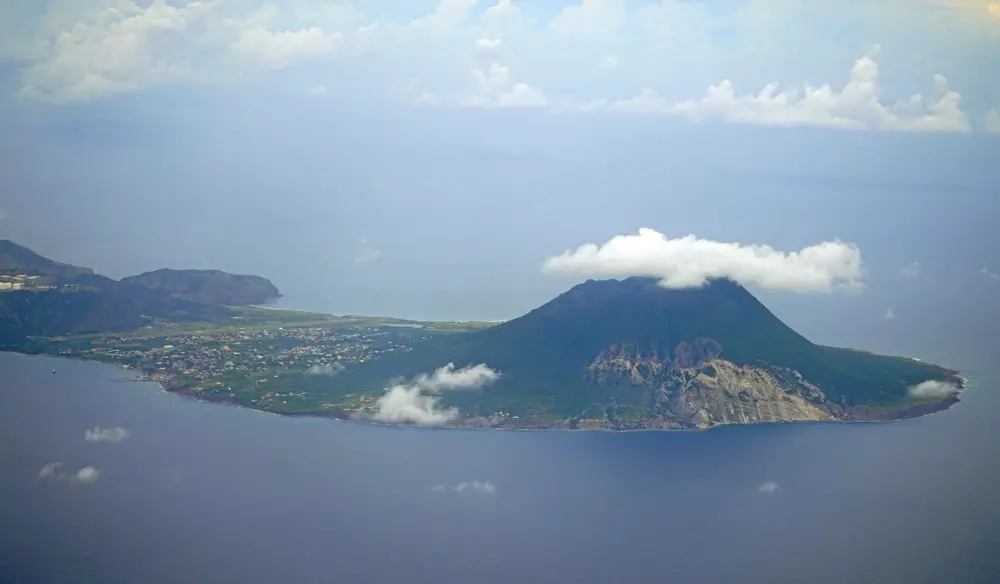If the Caribbean island were to be listed, a large part of the Germans would certainly completely forget St. Eustatius. If they have ever heard of the name of the island, which used to be part of the Netherlands Antilles . The situation could be different in the Netherlands. After all, the small island in the Caribbean is still a special municipality of the Netherlands and has a long history of colonization behind it. The small island has become a Mecca for those tourists who want to experience Caribbean flair without mass tourism. It is mainly the lovers of nature who are drawn to the small island paradise.
What do you need to know about the small island of St. Eustatius?

With an area of just 21 square kilometres, St. Eustatius, also known as Sint Eustatius or Statia, is the second smallest of the former Netherlands Antilles. It is surrounded by more well-known names such as the St. Kitts Islands, which have long since become a paradise for holidaymakers in the Caribbean . Otherwise, at first glance, it is not so different from all the other islands in the region. The tropical climate is also present here, as well as the wonderful beaches and the clear to green sea that is so typical of the Caribbean region. The stratovolcano, which dominates the image of the island and is one of the most important tourist attractions, is also typical.
The island was not always so small and comparatively unknown. In the turmoil of the 18. and In the 19th century, it was not only important for trade in the region and had up to 8000 inhabitants – today there are only about 3200 – but also changed hands regularly. And although people pay with the US dollar on the island today, the population has decided that they want to remain a special part of the Netherlands , which was ultimately the masters of the island’s population. But what makes St. Eustatius so special in comparison and why should you ignore all the other big names and come here instead?
The nature island and its small wonders
The beaches already mentioned are a bit different on St. Eustatius. No white dream beaches, as they can be found in every travel guide and catalogue. In addition to the characteristic Steill coasts, there are mainly beaches of black volcanic sand. And in other respects, the island is simply a bit different from the so often photographed paradises in the rest of the Caribbean. There are relatively few visitors to the island, marketing and tourism do not yet play such a big role and instead visitors are lured with the untouched nature that can be found everywhere. No noisy beach bars, but typical Caribbean tradition and culture that can be found everywhere in the inhabited part of the island.
The two national parks are dominant on the island. Here, vast and unspoiled landscapes can be found. The volcano mentioned above also plays a very decisive role in the tours on St. Eustatius. The numerous hiking trails that lead through and across the island are ideal for nature tourists. Not only can you hike here, but the bicycle is of course also welcome. In addition, there are various tours offered by the first tourist companies on the island and carried out by locals.
The island is a real insider tip for divers. Due to the long and numerous battles for the small island, living history can be found directly in the waters off the coast. Countless ships have sunk here, been sunk or simply run aground. The many wrecks can still be seen today during guided dives. Treasure hunters also get lost here again and again and are often successful when they pull one or the other pearl out of the water. Otherwise, it is also a good idea to simply examine the nature around St. Eustatius below sea level.
Culture and holidays on the island of St. Eustatius
The island has also remained very natural in other respects. There are about 300 hotel beds throughout the island and a good handful of restaurants that tempt you with the typical cuisine of the Caribbean. The Dutch-Caribbean cuisine is widespread here and the seafood in particular plays a very important role on the plates. The island’s unchanged town centre still points to how the settlers must have lived here in the past. So if you want to visit the Caribbean without encountering too many other vacationers, your stay at St. Eustatitus is the right place for you.


